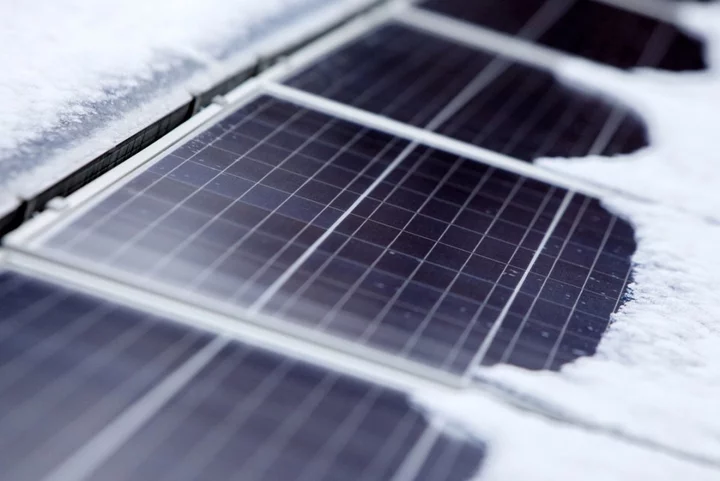
Scientists invent solar panel coating that lets them work in any weather
Engineers have invented a way to passively remove snow from solar panels to allow them to keep generating electricity during adverse weather conditions. A team from the University of Toledo in the United States developed a strip coating that causes accumulated snow to slide off solar panels without interfering with their efficiency. Solar panels can generate electricity on cloudy days, however snow cover can completely block their ability to harvest any of the Sun’s energy. This can result in up to 12 per cent loss of electricity generation per year in areas with heavy snowfall. The self-cleaning strips can also be applied to both new and existing solar installations relatively easily. “The strip coatings apply to the lower edge of the panel, resulting in passive snow removal without requiring any energy to operate,” said Hossein Sojoudi, an associate professor in the Department of Mechanical Industrial, and Manufacturing Engineering at the University of Toledo. “Our strip coating does not interfere with absorption of sunlight or panel efficiency at any time, does not cause any partial shading or hotspots on the panel, and does not invalidate module warranty and in fact improves the lifetime of the module.” Tests in the US and Japan found that solar panels fitted with the strip achieved more than 5 per cent improved power generation annually. Solar accounted for around 3.4 per cent of electricity generation in the US last year, according to figures from the Energy Information Administration, while more than half of new US electricity-generating capacity in 2023 is forecast to be from solar. Working with industry partners, Dr Sojoudi said he expects thousands of strip coatings to be installed across the US by the end of 2023. “We estimate to reach a production rate of 1 million strip coatings by the end of 2024,” he said. “Our solution is a game-changing technology that can lead to an additional $150 million in additional annual revenue, across states with heavy snowfall... Through the help of our strategic partners, we are delivering on the promise of solar energy all year long.” Read More Battery breakthroughs are about to trigger a transport revolution Hundreds of years after it was discovered, one material is about to change the world World’s first solar-powered hybrid truck tested on public roads Apple explains how the iPhone turned into a camera like none before it UK competition regulator proposes guiding principles to make AI market safe
2023-09-18 22:24

Paper Mario: The Thousand-Year Door Remaster Release Date
Mario fans will be able to play Paper Mario: The Thousand-Year Door soon.
2023-09-18 22:17

UK competition regulator proposes guiding principles to make AI market safe
The expanding artificial intelligence (AI) market, including chatbots such as ChatGPT, can help boost productivity and economic growth across the UK if developed responsibly, the competition watchdog has said. In a new report, the Competition and Markets Authority (CMA) has set out a list of guiding principles for the AI market to ensure consumers are protected. They include ensuring the AI developers are accountable for their output, while access to services, diversity within the market, choice and flexibility are also key focuses alongside a push for fair dealing and transparency. The CMA’s report comes amid growing concerns over the rapid development of generative AI – accessible technology that can create text, images and video barely distinguishable from humans’ output. Regulators worldwide are stepping up their scrutiny of AI, given its explosion into general use worldwide and fears over its impact on jobs, industry, copyright, the education sector and privacy – among many other areas. The speed at which AI is becoming part of everyday life for people and businesses is dramatic. There is real potential for this technology to turbo charge productivity and make millions of everyday tasks easier – but we can’t take a positive future for granted Sarah Cardell, CMA chief executive In its report, the CMA said competitive, responsible AI markets could see the creation of new and better products and services, as well as easier access to information, scientific and health breakthroughs and lower prices. But the watchdog warned that if competition is weak or developers fail to adhere to consumer protection law, people and businesses could be harmed through exposure to significant levels of misinformation and AI-enabled fraud. It also said that without proper principles, a handful of companies could use AI to gain or entrench positions of market power. Sarah Cardell, CMA chief executive, said: “The speed at which AI is becoming part of everyday life for people and businesses is dramatic. There is real potential for this technology to turbo charge productivity and make millions of everyday tasks easier – but we can’t take a positive future for granted. “There remains a real risk that the use of AI develops in a way that undermines consumer trust or is dominated by a few players who exert market power that prevents the full benefits being felt across the economy. While I hope that our collaborative approach will help realise the maximum potential of this new technology, we are ready to intervene where necessary Sarah Cardell, CMA chief executive “The CMA’s role is to help shape these markets in ways that foster strong competition and effective consumer protection, delivering the best outcomes for people and businesses across the UK. “In rapidly developing markets like these, it’s critical we put ourselves at the forefront of that thinking, rather than waiting for problems to emerge and only then stepping in with corrective measures. “That’s why we have today proposed these new principles and launched a broad programme of engagement to help ensure the development and use of foundation models evolves in a way that promotes competition and protects consumers. “While I hope that our collaborative approach will help realise the maximum potential of this new technology, we are ready to intervene where necessary.” As part of its engagement programme, the CMA said it will begin discussions with AI stakeholders in the UK and globally around developing its principles further and working with those groups on developing AI markets further. Read More Charity boss speaks out over ‘traumatic’ encounter with royal aide Ukraine war’s heaviest fight rages in east - follow live ‘Shocking’ rise in number of children falling victim to sextortion, charity says BBC, ITV, Channel 4 and Channel 5 announce smart TV platform Father of Molly Russell calls on Ofcom to ‘boldly’ enforce new online safety law
2023-09-18 20:50

GE HealthCare gets $44 million grant to develop AI-assisted ultrasound tech
GE HealthCare Technologies Inc has received a grant of more than $44 million from the Bill & Melinda
2023-09-18 20:45
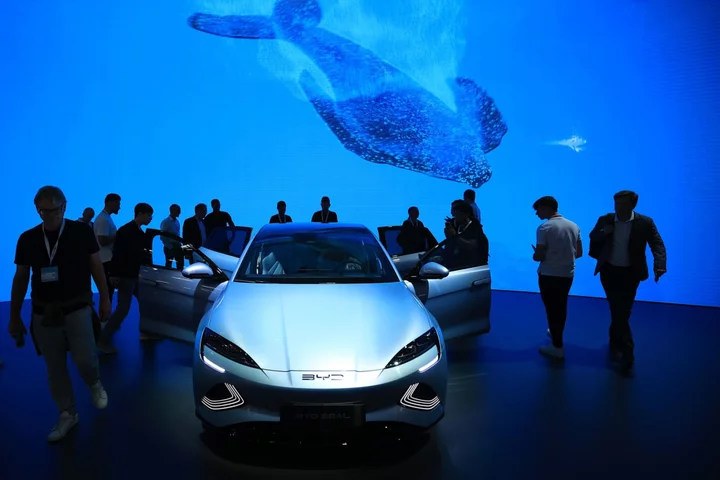
Europe's Battle Against Chinese EVs Isn't a Repeat of 2000s Solar Flood
European Union leaders say their investigation into whether Chinese subsidies are giving its companies an unfair advantage in
2023-09-18 19:59
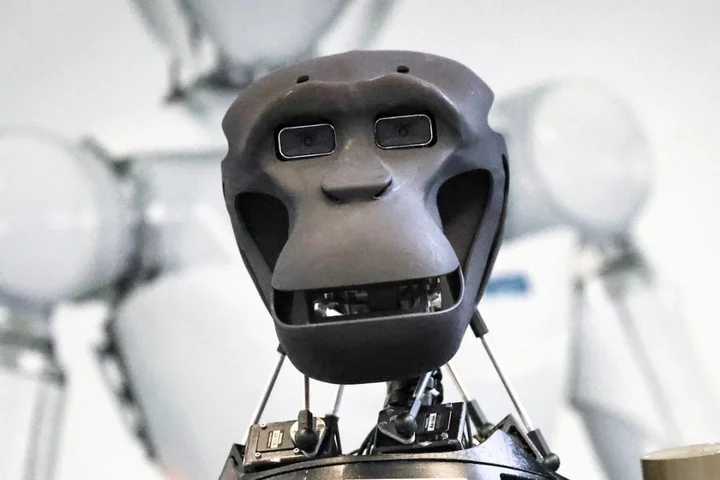
ChatGPT AI is about to be eclipsed by ‘interactive AI’, DeepMind founder says
The current wave of generative AI tools like ChatGPT will soon be surpassed by “interactive artificial intelligence”, according to AI pioneer Mustafa Suleyman. The co-founder of DeepMind, which was acquired by Google for $500 million in 2014, said the next generation of AI tools will be “a step change in the history of our species”, allowing people to not just obtain information but also order tasks and services to be carried out on their behalf. “The first wave of AI was about classification. Deep learning showed that we can train a computer to classify various types of input data: images, video, audio, language. Now we’re in the generative wave, where you take that input data and produce new data,” Mr Suleyman told MIT Technology Review. “The third wave will be the interactive phase. That’s why I’ve bet for a long time that conversation is the future interface. You know, instead of just clicking on buttons and typing, you’re going to talk to your AI.” This will allow users to ask these AI to perform tasks for them, which they will carry out by talking with other people and interacting with other AIs. “That’s a huge shift in what technology can do. It’s a very, very profound moment in the history of technology that I think many people underestimate,” he said. “Technology today is static. It does, roughly speaking, what you tell it to do. But now technology is going to be animated. It’s going to have the potential freedom, if you give it, to take actions. It’s truly a step change in the history of our species that we’re creating tools that have this kind of, you know, agency.” When questioned about the potential risks of giving artificial intelligence autonomy, Mr Suleyman said it was important to set boundaries for the technology and make sure that it is aligned with human interests. When Mr Suleyman was still working at DeepMind, his colleagues helped develop what became known as a “big red button” that would effectively serve as an off switch for rogue AI. A research paper titled ‘Safely Interruptible Agents’ described how any misbehaving robot could be shut down or overriden by a human operator in order to avoid “irreversible consequences”. Read More 10 ways AI will change the world – from curing cancer to wiping out humanity
2023-09-18 19:50

Scientists have discovered a new fly that fails its one job
Scientist have discovered a fly that... can't fly. In December 2021, the John Midgley and Burgert Muller from the Diversity of Pollinating Diptera in South African Biodiversity Hotspots project went to Lesotho, the only country in the world that has its entire territory located at an altitude of 1,000 metres and higher to see what they could find. At the Afriski mountain resort, they found 51 male specimens of Atherimorpha latipennis (a species discovered in 1956 but whose female had never been described) and a for the first time a female belonging to the same species which couldn't get off the ground. “It’s not unheard of for only the female of a species to be flightless,” says Midgley. “But there were no examples in this fly’s family, let alone its genus.” Martin Hauser, a senior dipterologist at the California Department of Food and Agriculture, who was not involved in the research, told the Guardian: “Active flight has only originated four times in the last three billion years, so it’s always interesting when a species loses the ability to fly. It isn’t super surprising to find flightless species. But it is remarkable when the first case of flightlessness is reported in a family.” Scientists could only make educated guesses about why the female had lost the ability to fly. Despite it being much faster than walking, allowing flies to escape predators. “flight is also costly,” said Midgley. “You have to grow wings, and it uses a lot more energy than walking.” “For the males it is worth flying around and being able to search a larger area for females,” said Hauser. “Even if, while flying, they are exposed to birds and other predators, and risk being blown off the mountain and ending up in a hot valley with no females.” Meanwhile, there are other species that can't fly like ostriches, kiwi and emus. It is thought they evolved to lose flight after the dinosaurs became extinct because there were no predators big enough to hunt them. Fly - you had one job... Sign up to our free Indy100 weekly newsletter Have your say in our news democracy. Click the upvote icon at the top of the page to help raise this article through the indy100 rankings.
2023-09-18 19:28

UK focuses on transparency and access with new AI principles
By Paul Sandle LONDON (Reuters) -Britain set out principles designed to prevent generative AI models like ChatGPT from being dominated
2023-09-18 19:23
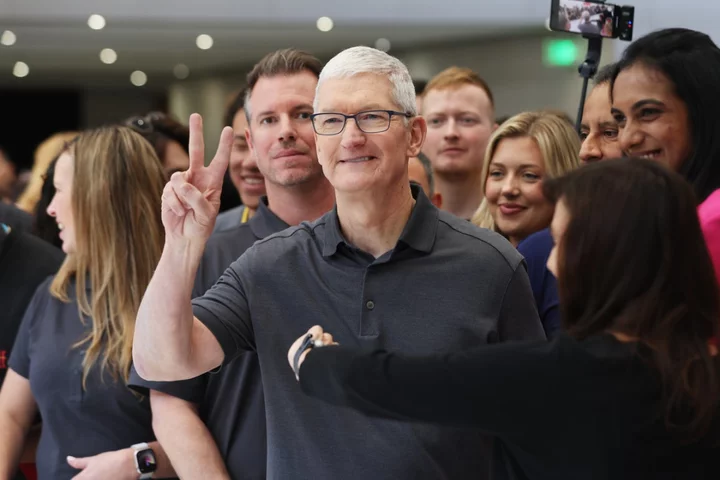
Tim Cook insists Vision Pro on track for release: ‘I watched all of Ted Lasso Season 3 on it’
Tim Cook has seen “the entire third season of Ted Lasso” on the Apple Vision Pro headset as he confirmed the company’s new and highly anticipated product is set to release on schedule. The headset, announced in June this year, is a virtual reality tool that allows people to see apps projected on top of the room around them. Apple said it allows apps to be “freed from the confines of a display” and mark a shift towards “spatial computing”. During the launch event in June, the tech giant said the headset would cost a whopping $3,499 and be available early next year in the US. In an interview with CBS Sunday Morning, the tech giant’s boss emphatically said the headset, deemed one of Apple’s most important products since the iPhone, is on track for release. Mr Cook was asked whether the product was still set for release in early 2024. The Apple boss replied saying “it is on track”, and added that he was “using it on a regular basis”. “I watched the entire third season of Ted lasso on the Vision Pro,” he said. “And of course there’s some things that I have access to that other people don’t have. “It is more complex and requires innovation not only in development but also in the manufacturing,” he said. Mr Cook also discussed Apple’s environmental initiatives, including plans to power 100,000 homes in Brown County, Texas with clean energy. While announcing the Vision Pro headset, Apple had said the device is the “most ambitious” product it has ever created. The headset has glass on the front and inside and an aluminium frame and a soft band that raps around the head. Apple said during the product’s announcement that its ambitious display is detailed enough to show 4K video natively. With the headset, Mr Cook said users will be able to “interact with digital content just like it’s in your physical space”, and will no longer be “limited by the display”. Apple also announced the new Apple watch last week – its first “totally carbon neutral” product. Read More iPhone 15 and Pro: Apple opens pre-orders for new handset What is USB-C, the charging socket that replaced Apple's Lightning cable? Apple unveils Watch Series 9 with new processor and hands-free features Apple Store goes offline as Apple opens pre-orders for iPhone 15 Apple to update iPhone 12 after fears over radiation iPhone 12 is not emitting dangerous radiation, Apple says, amid fears of Europe ban
2023-09-18 15:55

Irish university A-level criteria 'disadvantaging NI applicants'
A new study suggests the treatment of A-levels makes it harder for NI students to get in.
2023-09-18 14:19
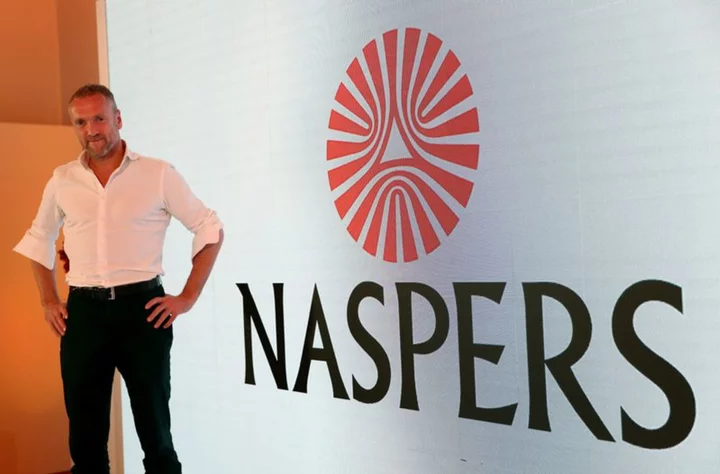
Naspers, Prosus CEO Bob van Dijk steps down
JOHANNESBURG Dutch-listed technology investor Prosus NV and its South African parent Naspers said on Monday Bob van Dijk
2023-09-18 13:53
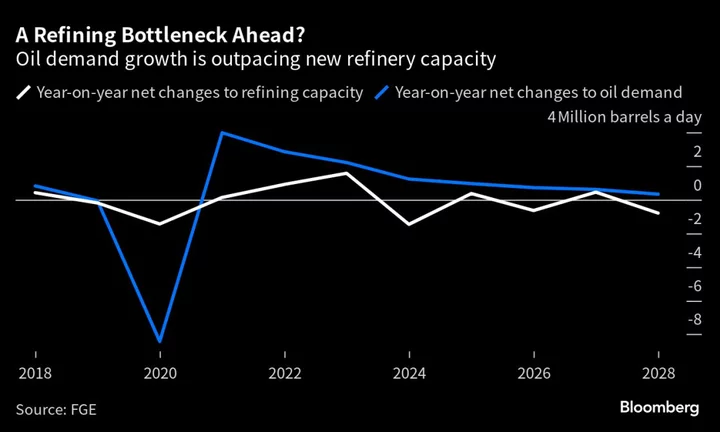
A Crunch in Key Corner of Oil Market Leaves Consumers Vulnerable to Heat and War
Refining, long one of the more predictable corners of the oil market, is caught in a climate bind.
2023-09-18 12:21
